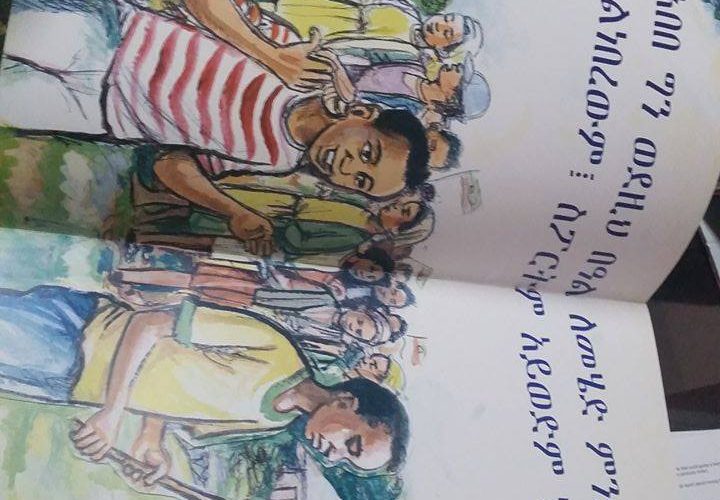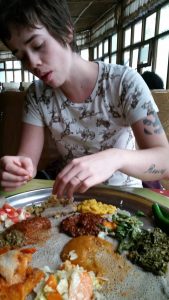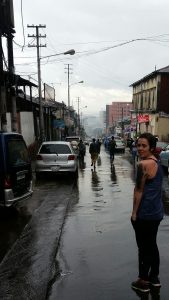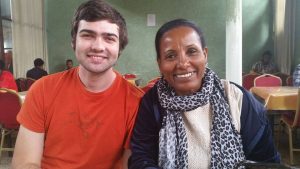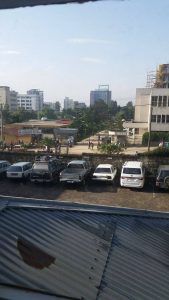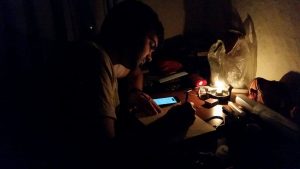Today was the last day of my observations as well as the last day we see Hareg. It was a busy day, Miskaye Hizunan School visits in the morning followed by a visit to the Entoto Vocational and Technical Training College.
It was so fun to see a wood shop for the first time while in Addis! Wood shops and metal fabrication shops, electronics shops and a campus teaming with technology education. The students ranged from 16 to 20s, the youngest are from the ‘drop outs’ of gr 10. It was a good way to end this three week learning experience and renewed my hope that maybe one day technology education will be brought into the high schools of Addis.
I took the mini buses this morning to school and thought, this is the last time. It made the daily grind of vocal harassment from a particular group of street youths seem slightly less repugnant. When I entered the AAU for the last time, I was happy to receive a bag check and interrogation from the guard, knowing I would never be so sceptically viewed as some sort of insurgent in the University. I had a delicious traditional coffee at the local coka tent, and observed my last class at Miskaye Hizunan. It was a day full of last times. Saddest amongst all was bidding Hareg farewell, though not as sad as it could be as we are probably seeing her in Canada before too long.
We are spending our last night in the guest house tonight. Tomorrow (Friday) we are running some errands before we head to the airport in the evening. Our flight leaves Saturday morning at 2am. Same deal as before, Addis to Heathrow, Heathrow to Los Angeles and then LA to Vancouver. Arrival is scheduled for Saturday at 6pm (we gain a day).
Great trip, great people.
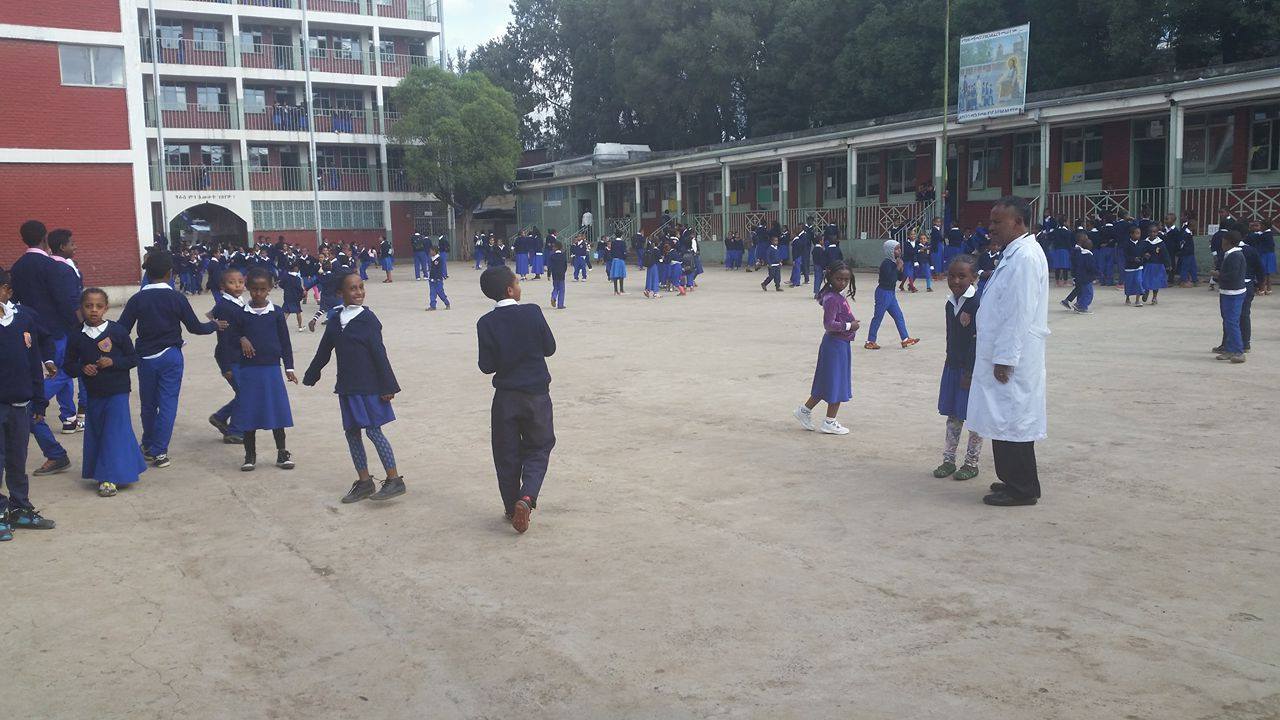
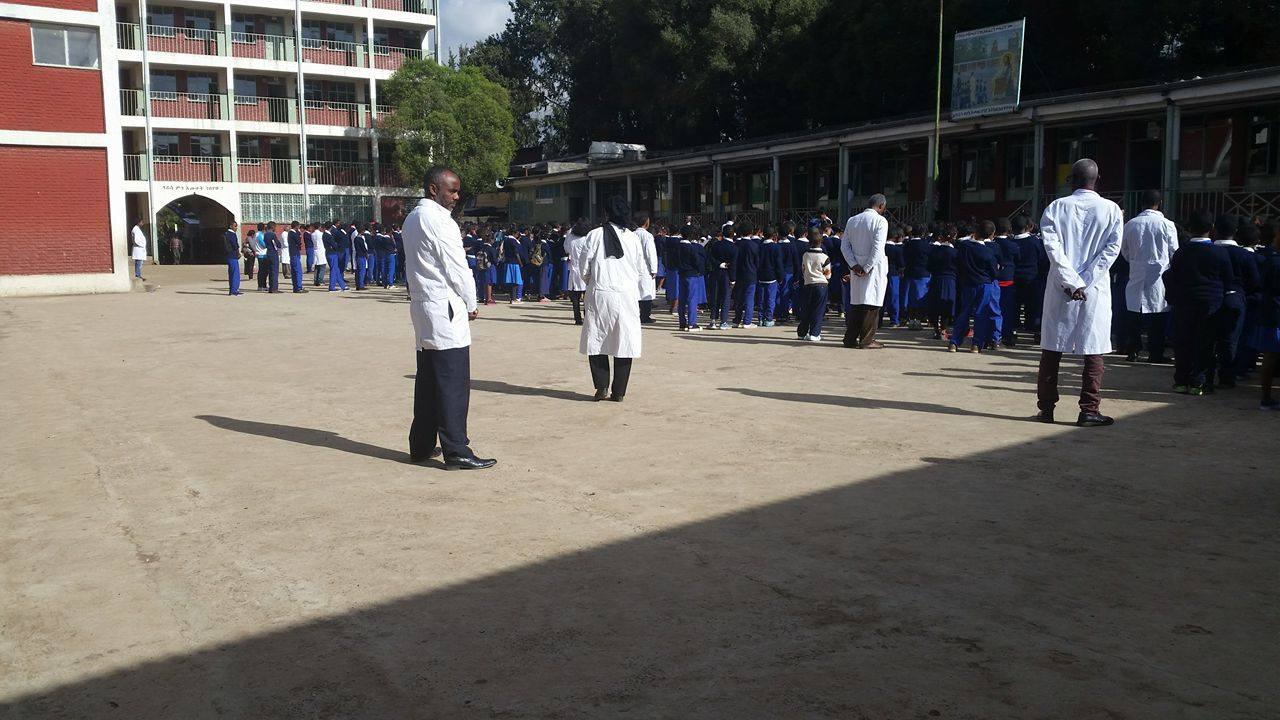
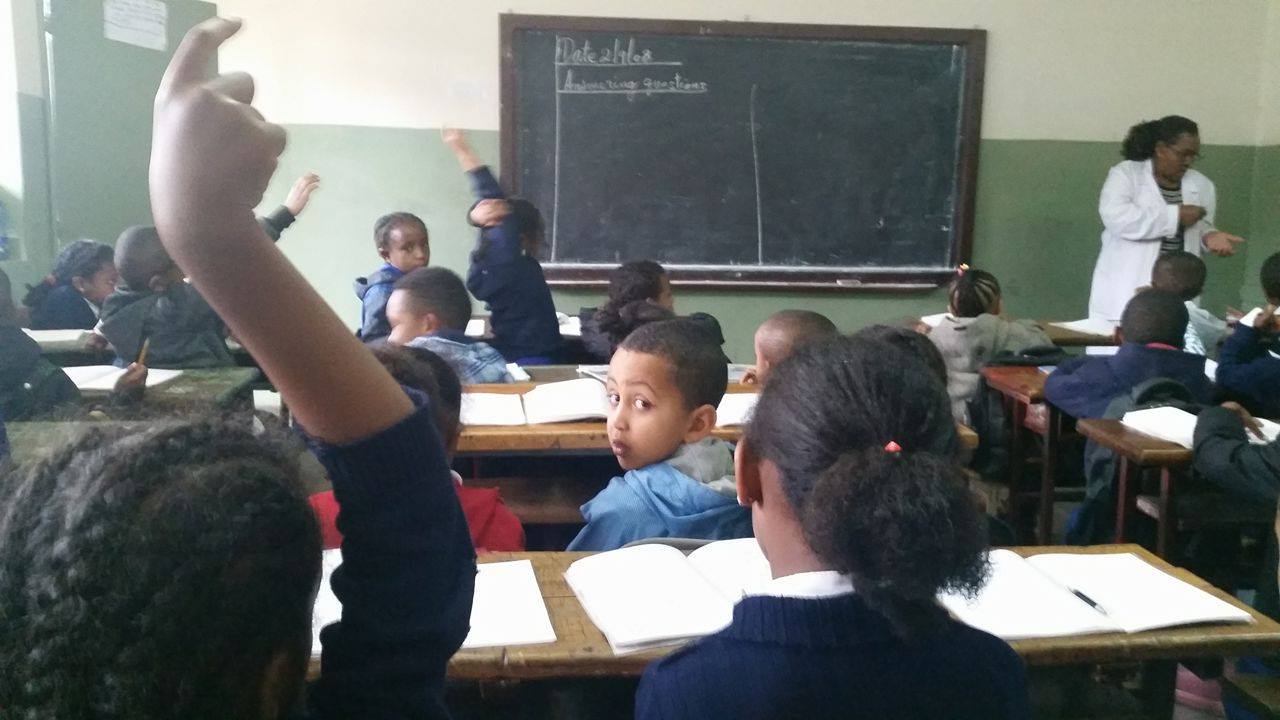
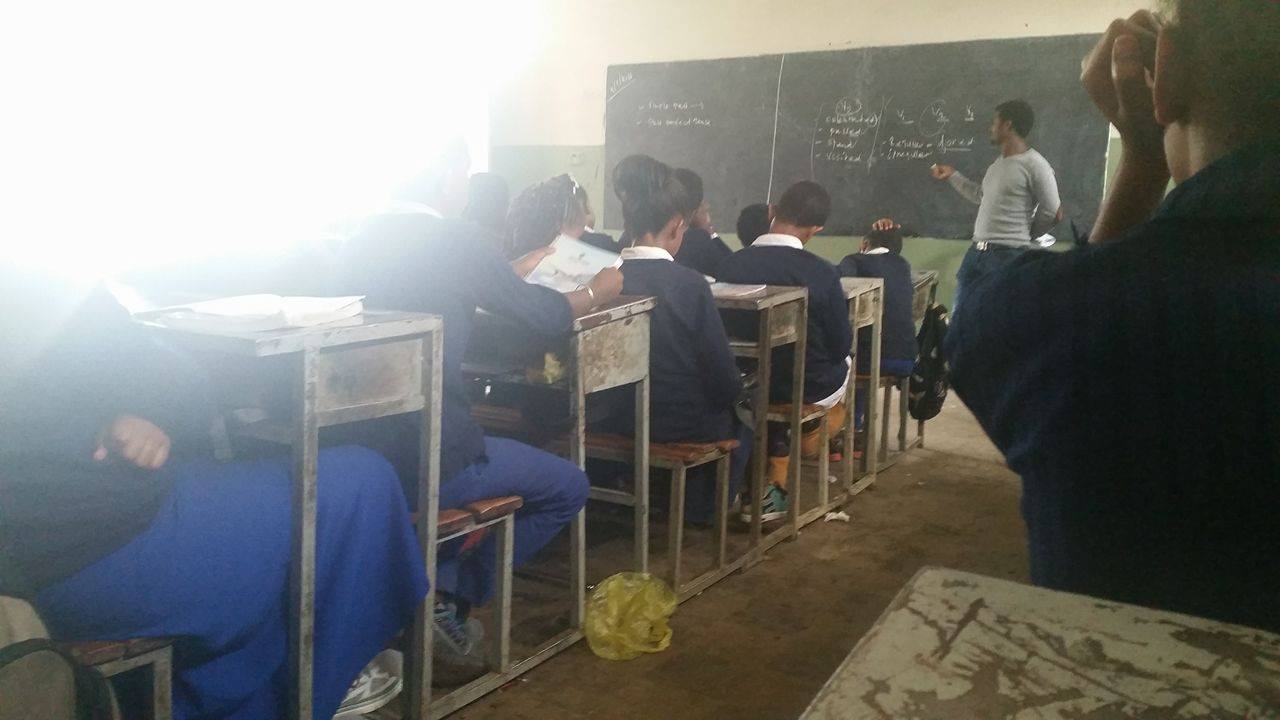
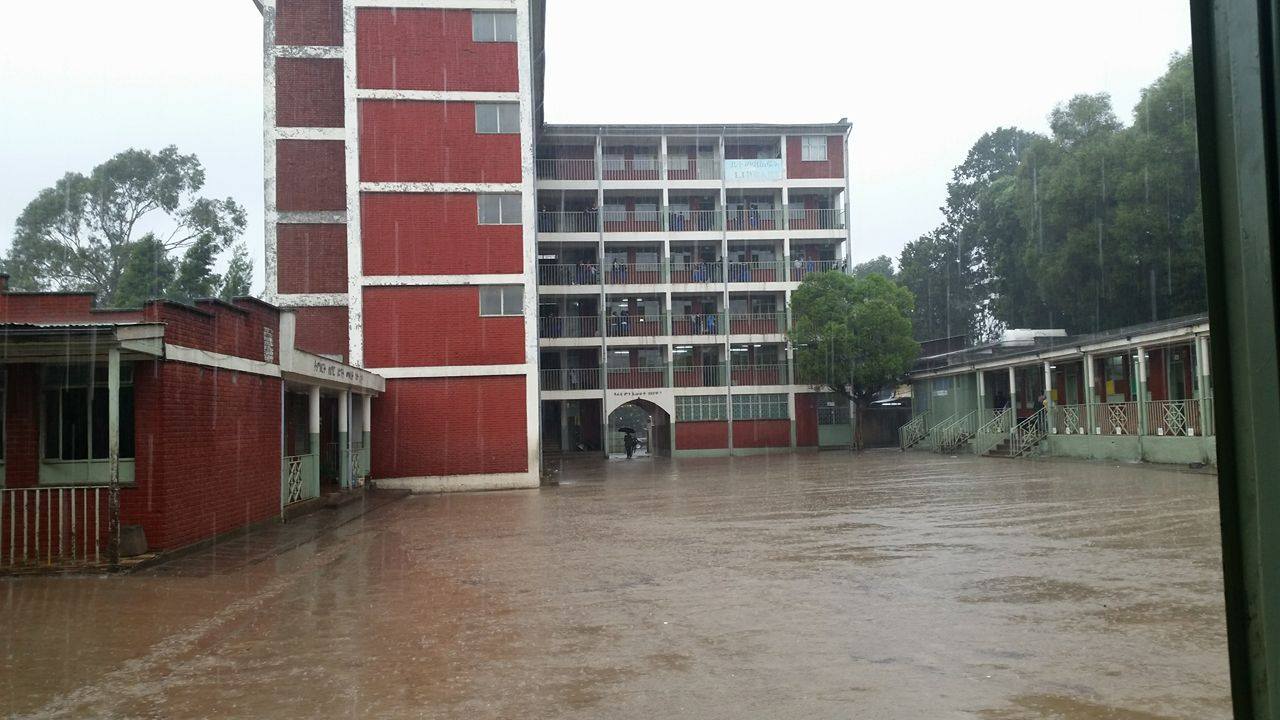

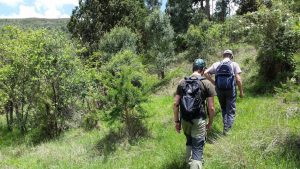
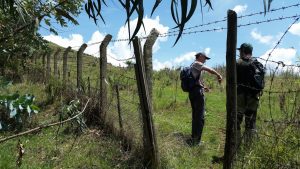
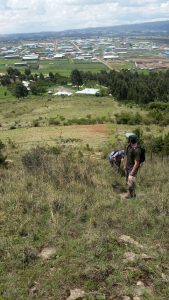
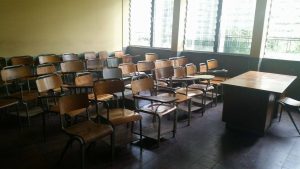
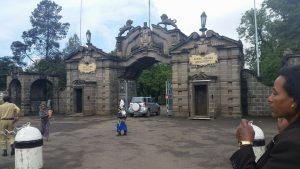 Gates into Addis Ababa University
Gates into Addis Ababa University